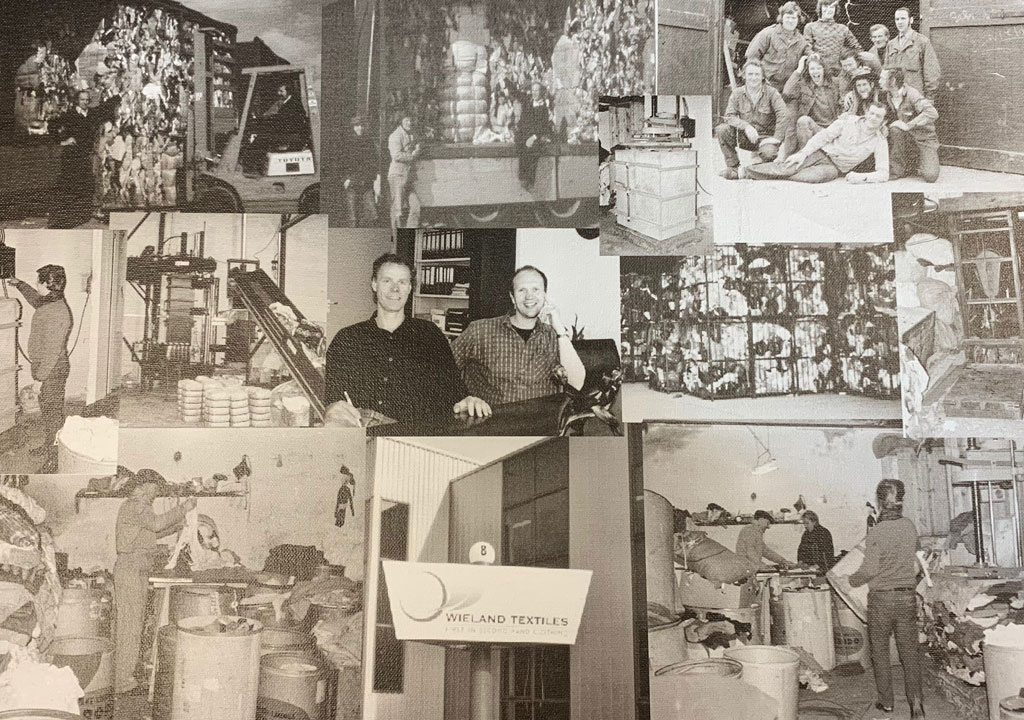The story of Wieland reflects the economic history of Western Europe
The story of Wieland Textiles shares a number of characteristics with the development of welfare in post-war Western Europe. After starting off as a small and modest family business in ‘rags trade’ in the sixties, the growing welfare was accompanied by a fast-growing supply of discarded textiles in the seventies. In 1984 this enabled the company to open its first ‘sorting plant’, equipped with efficient half-automized business processes. Partly as a result of the successful trade of well-sorted second-hand clothes in what was then known as the ‘Third World’, from 2000 on, the company was able to expand its business at its new location in Wormerveer. Growing concerns about the downside of this ever-growing welfare at the start of a new millennium encouraged Wieland to gradually transform into a ‘sustainable enterprise’.
A small firm in rag sorting
At the end of the sixties, the brothers Cor, Bob and Henk Wieland started a small firm in rag sorting in in Amsterdam. They mainly focused on the recovery of valuable materials from discarded textiles, fabrics for cleaning clothes for example. In those days, the textiles they collected mainly consisted of worn out clothes, that were not suitable for recycling. As a result of the growing welfare, the number of discarded garments increased substantially over the years. In the eighties, the market for second-hand clothes had changed so much, that the company couldn’t continue with ‘business as usual’. The brothers decided to dissolve the company and to start their own enterprises separately.
Exploring new business opportunities
The eldest brother, Henk Wieland, made way for his son René who had worked in the company for some years. In 1984, René founded Wieland Textiles and located the company in the former office of his father and his uncles in Lijnden, in the province of North-Holland in the Netherlands. In 1997, Hans Bon accepted the invitation of his former school mate René to join forces. The collaboration proved to be fertile paving the way to new business opportunities. In 2000, Wieland Textiles moved to the present location in Wormerveer to provide room for further business growth and innovations.
In contrast to the former family business, Wieland Textiles has based its operations on a business model that generates its main revenues from the sales of second-hand clothes to customers abroad. However, sophisticated cascade recycling of all textiles has gained importance in recent years. Partly, this is a result of the increasing attention for the sustainable re-use of valuable materials. Moreover, cascade recycling of low-value fabrics in particular, is crucial for Wieland’s business continuity and profitability, because the costs of sorting these fabrics are higher than the yields. The more low-value fabrics can be recycled and re-used against feasible prices, the better. These and other considerations have contributed to a business strategy that is focusing more than ever on the development of a competitive market for fibers from discarded garments and textile materials that have been sorted by means of Fibersort.



